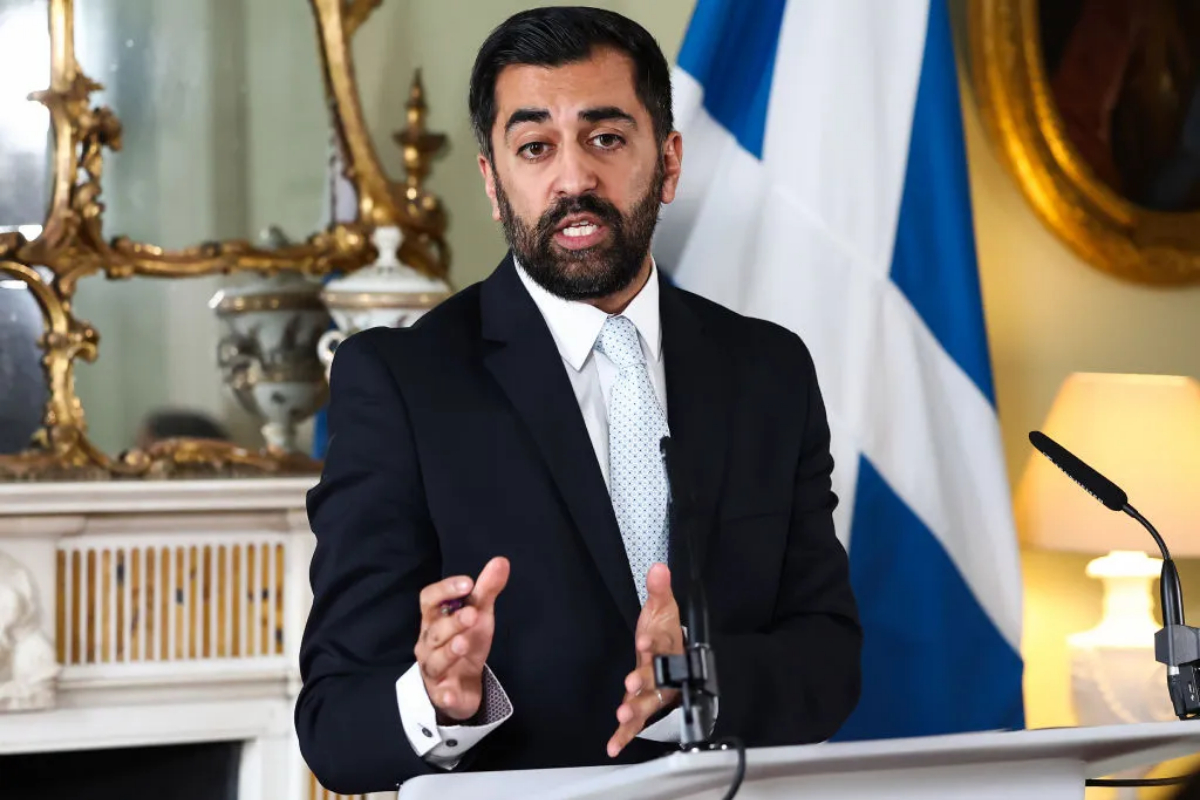- He plans to continue serving until a successor is elected.
- Yousaf terminated a power-sharing agreement with the Green Party to lead a minority government.
- The SNP’s fortunes have suffered due to a funding scandal and the resignation of a party leader last year.
On Monday, Scottish First Minister Humza Yousaf resigned from his position as leader of the Scottish National Party (SNP) and announced that he had ordered a contest to choose a replacement.
“I’ve concluded that only someone else at the helm can repair our relationship across the political divide,” Yousaf stated at a press conference in Edinburgh.
“I have therefore informed the SNP’s national secretary of my intention to stand down as party leader and ask that she commences a leadership contest for my replacement as soon as possible.”
He announced his intention to continue serving as first minister until the election of a successor.
Last week, Yousaf abruptly terminated a power-sharing agreement between his Scottish National Party (SNP) and the Green Party, aiming to lead a minority government. However, opposition parties have proposed a vote of no confidence.
The pro-independence SNP’s fortunes have suffered amid a funding scandal and the resignation of a party leader last year, while there has been infighting over how progressive its pitch should be as it seeks to woo back voters.
Just days ago, Yousaf expressed confidence in his ability to win the no-confidence vote called by political opponents, but by Monday, his attempt to initiate talks with other parties to bolster his minority government appeared to be faltering.
The leadership crisis and a second no-confidence vote against the Scottish government deepened problems faced by Yousaf’s Scottish National Party, which is experiencing a decline in popular support after 17 years of leading the Scottish Government.
Earlier this month, polling firm YouGov reported that the Labour Party had surpassed the SNP in voting intentions for a Westminster election, marking the first time in a decade.
The leader of the Scottish Greens, Patrick Harvie, informed BBC radio that there was nothing Yousaf could say to convince his party to support the first minister in the parliamentary confidence vote, leaving Yousaf with few options.
Officials have planned the vote for later this week.
A victory for Labour in Scotland in Britain’s next national election — anticipated later this year — would substantially enhance the party’s prospects of seizing power from Prime Minister Rishi Sunak’s Conservative Party.
If Yousaf loses, parliament must select a new first minister within 28 days or be forced to call an election.
According to the Times newspaper, senior party figures have asked former SNP leader John Swinney to consider serving as an interim first minister if Yousaf is forced out of office. The report adds that Swinney is reluctant to step up due to personal circumstances.
Yousaf, who previously held health and justice ministerial briefs in the Scottish Government, succeeded former SNP leader Nicola Sturgeon as first minister in March 2023.
Last year, Sturgeon resigned and has since become involved in a party funding scandal alongside her husband, who faced charges this month for embezzling funds. Both deny wrongdoing
[embedpost slug=”humza-yousaf-criticizes-uk-foreign-minister-over-erdogan-cop28-meeting-threat/”]





















